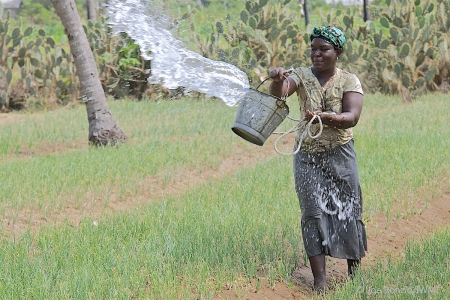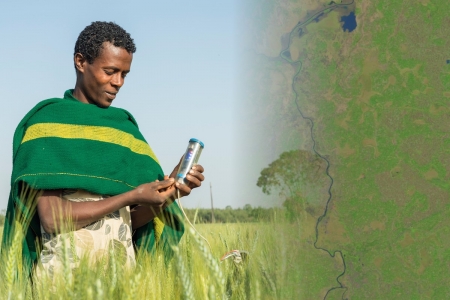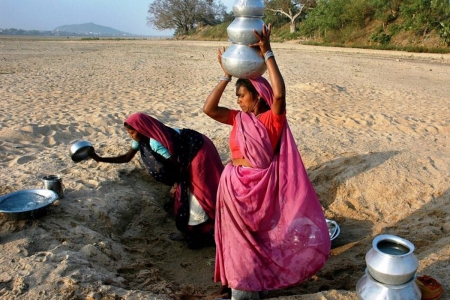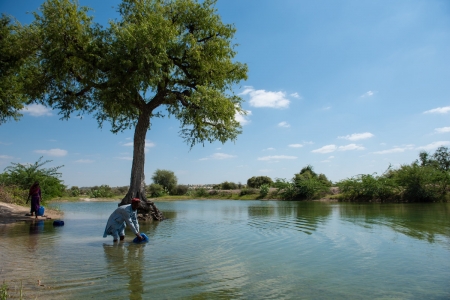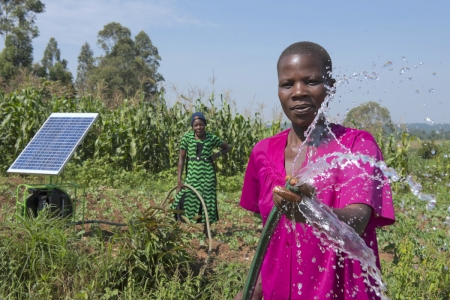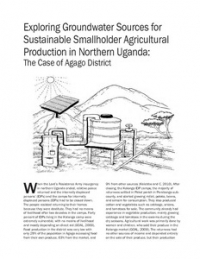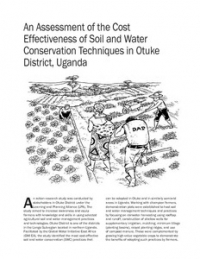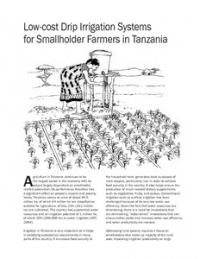Originally published on ICRISAT
A farm machine-hiring center set up in two villages in South India is showing how research-led interventions, based on a clear understanding of on the ground realities, can result in saving time, cost and labor for dryland farmers while creating jobs for rurally-based youth. ICRISAT studies show that besides improving on-farm operational efficiency and saving time, mechanized farming has the potential to increase yields by more than 10% and increase incomes by 12%.
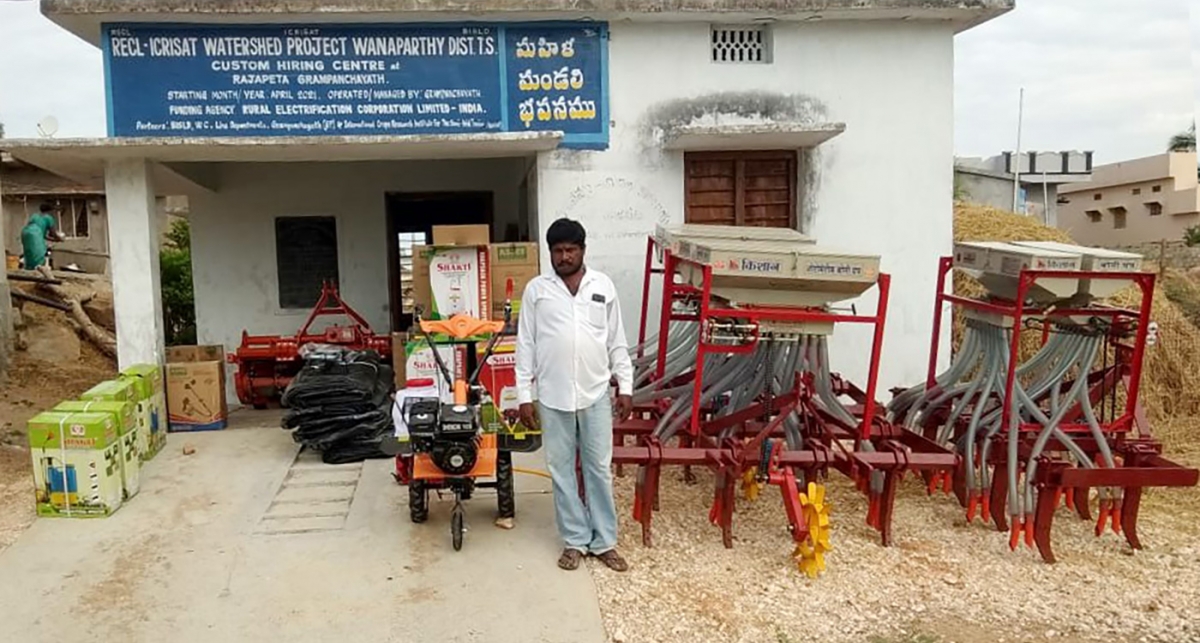
Renting a sprayer helps her cut costs drastically
A couple of months ago tenant farmer V Adilakshmi would not have imagined that she would be able to carry on farm activities on a small 'brinjal' farm at one-sixth of the cost she usually spent. "Pest attack is a severe problem during crop development and the fruiting stage. I used to hire people who owned sprayers and that costed me nearly ₹ 600 per day, but with the availability of hiring options, I have rented a sprayer that costs only ₹ 100 per day. Thanks to the project team for setting up the center. This is the first time I have seen anything like it in my village," she says.
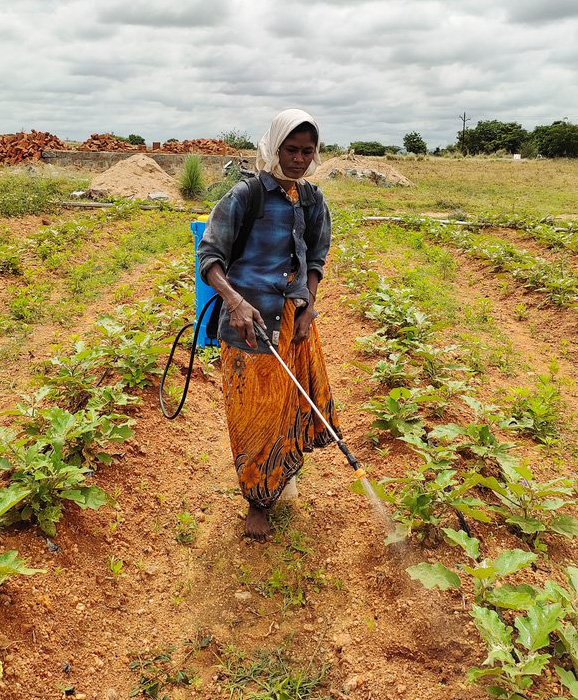
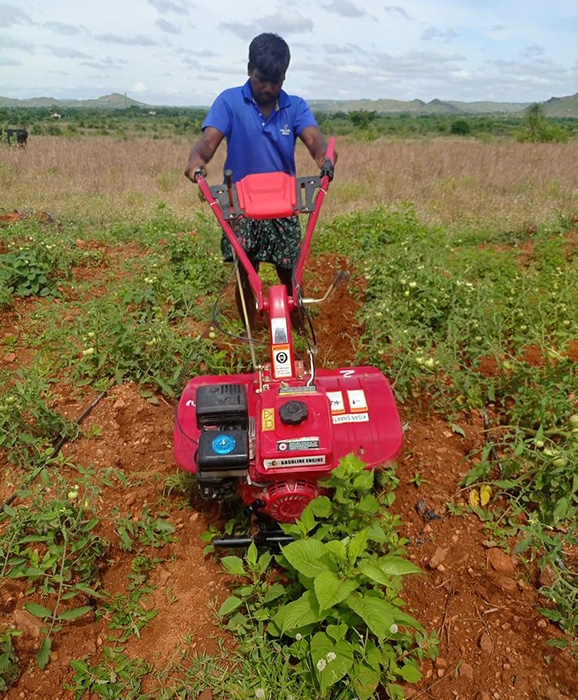
Mechanization leading to greater sowing and weeding efficiency
Farmer J Praveen who hired the power weeder says, "Labor shortage is a major problem in my village and for longer duration vegetables, like the tomatoes I am growing, more weeding sessions are needed. Using the hired machinery I have reduced weeding costs and saved a lot of time too."
Farmer B Anil Kumar who hired the seed cum fertilizer drill says, "With the traditional method of sowing I could cover about half a hectare in a day, but with the drill I sowed pigeonpea on my entire 1.6 ha of land in a single day. I am happy that the seed drill cut the labor cost by 60%."
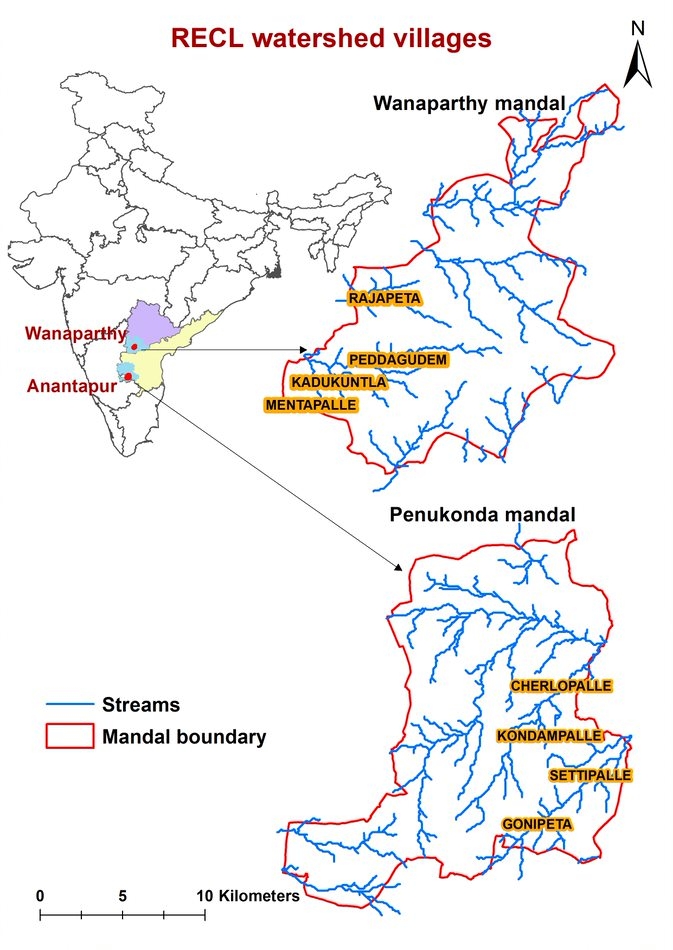
Creating jobs for youth, replicating a successful model
B Balaraj, who was hired as the caretaker from the custom hiring center in the watershed village in Telangana state, has begun to do brisk business. One of the centers earned up to ₹ 36,000 (US$ 486) during the first month itself. Each center provides direct employment to one youth caretaker from the village for handling the center's operations. Replicating this successful model, five more centers will be set up in five other villages in the Anantapur and Wanaparthy watershed sites (see map).
The custom hiring centers rent power-tillers, seed-cum-fertilizer drills, rotavators and power sprayers among other equipment. The local government (panchayat) operates the centers with technical support from ICRISAT and NGO partners, supported by the Rural Electrification Corporation Limited, Gurugram, India.
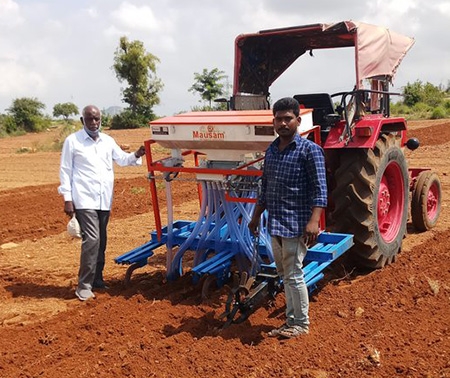
Building on lessons learned
An earlier initiative in Andhra Pradesh under the CRP on Dryland Systems has shown that shared machinery resources improved operational and economic efficiency of farm sowing operations through higher crop yields of around 10%. "Mechanized sowing not only saved cost around ₹ 1,000 (US$ 13.5) per hectare compared to traditional sowing (₹ 2,000 (US$ 27) per hectare vs. ₹ 3,000 (US$ 40.5) per hectare), but also recorded higher groundnut pod yields by 10% worth ₹ 5,200 (US$ 70.3) per hectare on average," says ICRISAT scientist Dr Girish Chander who led the project." The yield advantage through mechanization is apparent due to uniform spacing and line sowing implemented, and completion of sowing in a very short span to provide a long duration for the seed to exploit the available soil moisture," he says.
Acknowledgements: This work was undertaken through the CRP Water, Land and Ecosystems for the project "Farmer-centric Integrated Watershed Management for Improving Rural Livelihoods" funded by the Rural Electrification Corporation Limited, New Delhi, India. NGOs (Samatha Society for Rural Education and Development, Anantapur; BAIF Institute for Sustainable Livelihoods and Development, Hyderabad); Watershed Associations; Department of Agriculture, AP & Telangana and ICRISAT partnered.
---
Thrive blog is a space for independent thought and aims to stimulate discussion among sustainable agriculture researchers and the public. Blogs are facilitated by the CGIAR Research Program on Water, Land and Ecosystems (WLE) but reflect the opinions and information of the authors only and not necessarily those of WLE and its donors or partners.
WLE and partners are supported by CGIAR Trust Fund Contributors, including: ACIAR, DGIS, FCDO, SDC, Sida and others.


